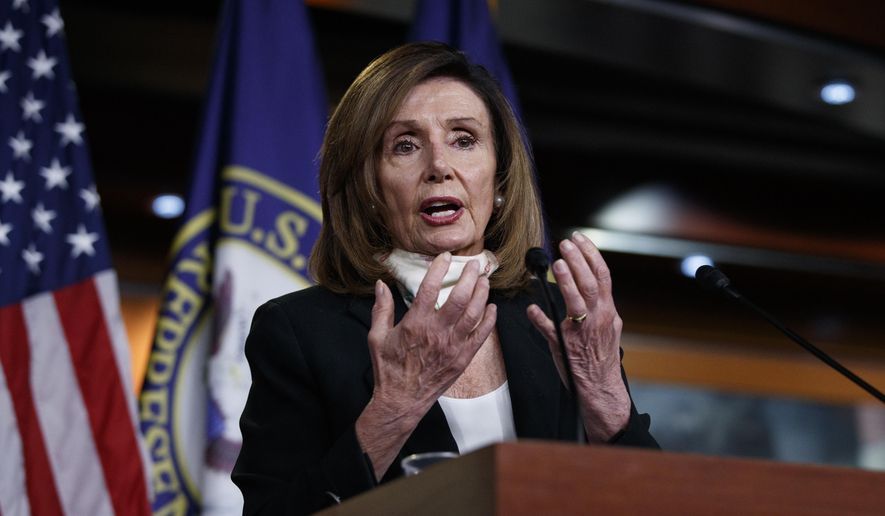OPINION:
In 561 BC, Peisistratos dissolved the Athenian “Ecclesia” (“Assembly”) and seized power in Athens and Attica. The Ecclesia, made up of all adult male landowners in the Athenian city-state, would not rule the city again for more than 50 years.
In 1258, Simon de Montfort, in a bid to maintain his shaky control over England, convened the precursor to the modern Parliament (from the French for “a place or occasion to talk”). In the subsequent years, kings and parliaments would joust for supremacy, with the parliament ultimately winning — primarily by executing Charles I in 1649. Across those four centuries, one of the most used and useful weapons wielded by monarchs against parliaments was to dissolve them and send them back to their shires.
On May 20, in a similar way, House Speaker Nancy Pelosi essentially dissolved the House of Representatives in a bid to reduce the power and authority of most of its members and increase the power and authority of its leadership. The given reason for doing this is to restrain the progress of the coronavirus, but the actual purpose is to accelerate the steady migration of decision-making power from rank and file lawmakers to leadership, its lieutenants and staff.
That migration has been ongoing for decades and can be seen in the obvious (the pervasive use of closed rules) and the grotesque (bills so large that no one but staff knows what might lurk in them). But the notion of proxy voting is a step change because it, more acutely than anything else, removes from House members the thing that distinguishes them from the rest of us — their ability to draft, deliberate, amend and vote on legislation.
The irreducible fact is that decisions get made by those who are in the room where it happens, not by those who have given their proxies to those who are in that room.
For those concerned about the partisan divide, is it likely to get better if we reduce the human interaction and the give and take that is (sometimes) a necessary ingredient in in the legislative process? That element of interaction is rare enough already. How rare will it be once lawmakers can and are in fact encouraged to evade the simple obligation to show up for work?
Apart from being extraordinarily disturbing from a historical and policy perspective, giving your vote to someone else is probably unconstitutional and, accordingly, contrary to the oath of office each member takes at the commencement of each session of Congress.
The Constitution gives leeway to the House and Senate with respect to their own rules of procedure. But in both chambers, a quorum is required to do business, and a quorum is defined as a majority of its members. Article 1 of the Constitution is pretty straightforward: “a Majority of each shall constitute a Quorum to do Business; but a smaller Number may adjourn from day to day, and may be authorized to compel the Attendance of absent Members, in such Manner, and under such Penalties as each House may provide.”
If physical presence isn’t necessary, compelling “Attendance of absent Members” would be equally unnecessary. Although proxy voting was possible at the time of the Constitutional Convention, delegates waited for their peers to conduct business in person. They knew the value of being physically present.
Is such presence inefficient? Absolutely. The Framers understood this. They did not intend to make it easy to reach consensus and govern. The People’s House is not intended or designed to have two lawmakers negotiate with the executive branch and then have the remainder of the membership ratify the result.
Congressional leaders cannot simply ignore historical, policy and pragmatic concerns, as well as constitutional requirements, simply because they find them inconvenient, troublesome,or inconsistent with their preferences to minimize the role of members and maximize the role of leadership and its staff.
Congress (from the Latin for “coming together”) is a gathering of people together to solve issues. That cannot and will not be accomplished in the absence of the people of Congress.
• Michael McKenna, a columnist for The Washington Times, is the president of MWR Strategies. He was most recently a deputy assistant to the president and deputy director of the Office of Legislative Affairs at the White House.




Please read our comment policy before commenting.